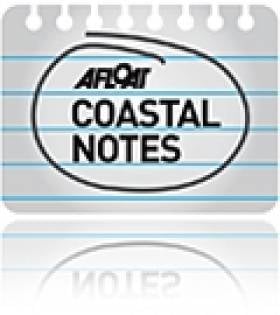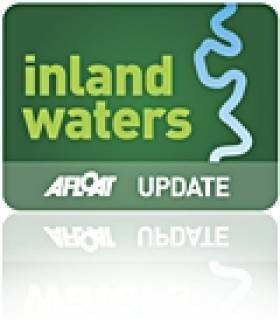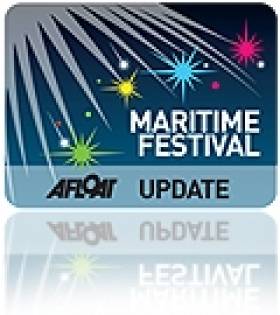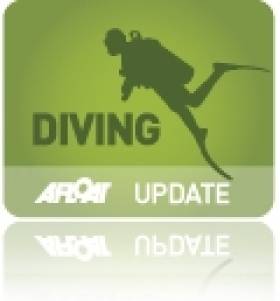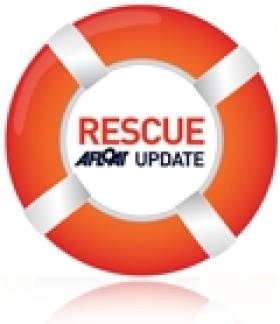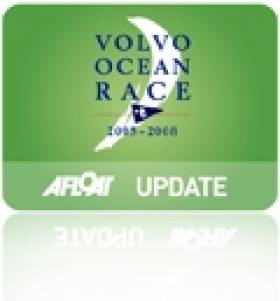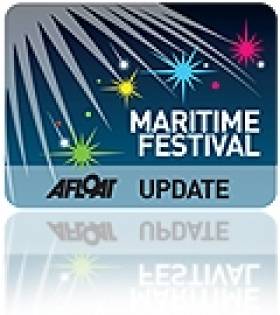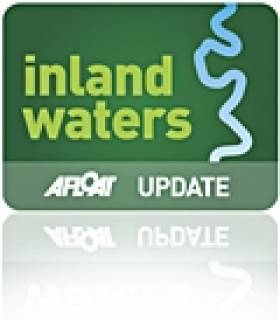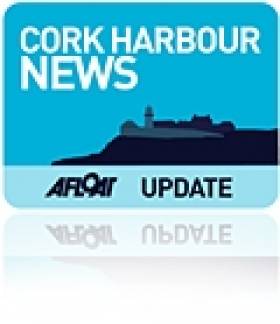Displaying items by tag: heritage
Storms Expose Neolithic Graves Among Connemara Archaeological Finds
#CoastalHeritage - The recent storms have proven an unexpected boon for archaeologists as the high winds and wave action on Connemara's coast have exposed remains dating back 6,000 years.
According to The Irish Times, parts of a Neolithic bog, along with two medieval burial grounds and traces of dwellings dating back to the 1700s, were among the sites revealed in sand cliffs on the island of Omey off Claddaghduff by the impact of the storms - the same storms that exposed the remains of the shipwreck Sunbeam in Kerry last week.
It's not all good news, however, as archaeologists fear many more priceless treasures were lost by the destruction wrought by the storms - including kitchen middens, preserved waste piles that teach us much about our ancestors' lifestyles.
Meanwhile, as heritage experts look to Ireland's past, residents in the Aran Islands have expressed their concerns about the future - specifically what impact such extreme weather might have on the proposed - and currently postponed - Galway Bay organic fish farm. The Irish Times has more on this story HERE.
Conference To Discuss State of Canals, Railways And Other Industrial Heritage
#Canals - Ireland's canals - along with the railways, mines and mills - carried the lifeblood of Ireland's burgeoning industrial age. But has this heritage been forgotten today?
That's the topic of discussion at The Forgotten State of Industry, a two-day international conference that will bring together speakers from Ireland, Europe and beyond to share their experiences of conserving, managing and presenting the remnants of the early industrial age.
The conference takes place from 18-19 October at the Glendalough Hotel in Co Wicklow. Information on ticketing, registration and more is available via the Heritage Council website HERE.
#maritimefestivals – The fascinating story of an ancient agricultural crop and how it played a key role in the maritime industry will be brought to life at Scotland's leading celebration of nautical heritage and culture.
A display and demonstration on flax – described as Britain's forgotten crop - will be one of the main attractions in the craft tent at the Aberdeen Asset Management Scottish Traditional Boat Festival later this month.
Crowds in excess of 16,000 are expected to descend on the village of Portsoy on the Aberdeenshire coast when the festival, now in its 20th year, takes place over the weekend of June 22 and 23.
The demonstration will be led by Flaxland, a group of flax growers and producers who featured in the BBC television show, Wartime Farm. They will be showing members of the public how the fibre was used in a huge variety of maritime products, and will reveal how they have even been able to build a boat made from flax fabric.
Flax growing in the UK is believed to date back to the Bronze Age and grew popular due to the versatility of both the plant's stem and seed. As well as being used in oil and in cooking, flax can be used to create everything from clothing to paint.
Roger Goodyear, chairman of the Aberdeen Asset Management Scottish Traditional Boat Festival, says organisers are delighted to welcome Flaxland to the event for the first time this year.
"The festival is one of many events taking place across the country for the Year of Natural Scotland, so it seems entirely fitting that this natural product with such a rich history in the UK should play a key role in this year's celebrations," he says.
"Authentic maritime and craft skills have always been an important part of the festival, and this year we will once again play host to a very diverse range of crafts men and women who represent the very best in traditional skills."
In addition to Flaxland, visitors will be able to learn splicing for beginners thanks to the maritime studies department of Orkney College, try a pottery wheel and watch a basket weaver in action. Younger visitors will also be able to take part in a workshop teaching basic knot-work, and the very popular Living Traditions tent will be making a return appearance.
The festival is a key event in the Year of Natural Scotland – a partnership between the Scottish Government, VisitScotland EventScotland and Scottish Natural Heritage which aims to showcase the country's unique natural environment.
For more information about the Aberdeen Asset Management Scottish Traditional Boat Festival and to buy tickets visit www.stbfportsoy.com Updates about this year's festival are also available on Facebook and Twitter – search for @STBFestival. An adult day ticket costs £8, children aged five to 18 and concessions are £5. Adult weekend tickets are priced at £12 and children and concessions at £8. There are also family tickets available which allow entry for two adults and three children for £25 for a day ticket and £35 for a weekend. Children under five go free and there is no charge for parking.
Bronze Age Boat Is Afloat!
#BronzeAgeBoat - After nearly a year of hard work by a team of volunteers in Cornwall, a pioneering heritage project to recreate an ocean-going boat from the Bronze Age finally saw its results take to the water recently.
The 50ft long, five-tonne vessel was crafted out of two giant oak logs using the tools and methods that the first boat builders would have had to hand some 4,000 years ago.
“It has been incredible to see this whole project take shape in the Museum building over the past 11 months," said Andy Wyke of the National Maritime Museum Cornwall.
Volunteers led by shipwright Brian Cumby worked in collaboration with leading Bronze Age boat expert Prof Robert Van de Noort and his colleagues at the University of Exeter to produce the finished article, which was successfully paddled in Falmouth Harbour much to everyone's delight and relief.
“There have been doubters, professionally, who questioned the feasibility of this vessel crossing the seas," said Prof Van de Noort. "This project has proven that it was possible.”
The boat is now on display at the museum's pontoon in Falmouth.
Dive Ireland 2013 Is 'Huge Success'
#Diving - The Irish Underwater Council (CFT) reports the "huge success" of the 22nd annual Dive Ireland expo in Athlone at the weekend.
The two-day event at the Hodson Bay Hotel welcomed "speakers from near and far as well as photography workshops and a fully loaded international trade fair" - not to mention the CFT National Dive Conference and AGM.
Ahead of the expo, Minister for Arts, Heritage and the Gaeltacht Jimmy Deenihan commented on the role of SCUBA clubs and diving centres in Ireland's national tourism infrastructure in promoting this country's dive sites.
In the foreword to the recently published Warships, U-boats and Liners, he also wrote of the Government's commitment to developing its archive of wrecks in Irish waters.
“With the support of responsible dive centres and local dive clubs ... these wrecks can be explored now and into the distant future by visitors from home and abroad.”
According to the CFT, local authorities are also starting to recognise the importance of developing aquatic activities to encourage tourism.
One example is Mayo County Council's Blue Ways list of swimming and snorkelling sites along the county's coast, which complements its Green Ways walking trails.
The council also highlighted the importance of heritage among Ireland's diving community, and their role in discoveries such as the Viking-era swords retrieved from the River Shannon near Banagher last autumn, as the Offaly Independent reports.
Donegal Skipper's Dramatic Alaska Rescue Story
#RESCUE - A Donegal-born skipper joined in the dramatic rescue of a fishing trawler crew in Alaska recently, the Donegal Democrat reports.
Seamus Hayden Jr, who captains the fishing vessel Clyde, was berthed in Lazy Bay at the southern end of the Kodiak peninsula when he responded to a call from fellow vessel the Tuxedni to assist the stricken Heritage, which was sinking a mile east of nearby Tanner Head.
“I rousted my crew and fired our main engine to join the Tuxedni in the search," he said. "I did not know at that time if the Heritage crew had abandoned ship.
“I informed everyone onboard my vessel to dress for extreme weather and to use utmost caution and a buddy system at all times around the vessel."
Visibility was low due to ice fog and the darkness of the Alaskan winter nights, and as they got closer to the Heritage's location - where the US Coast Guard was attemping a helicopter rescue - conditions were "horrendous", with ice-cold winds of 60 knots.
I was very worried for the safety of all involved, including our own," said Hayden.
The Donegal Democrat has much more on the story HERE.
Galway Hooker En Route to Abu Dhabi in VOR Cultural Exchange
A traditional Irish sailing boat is on the way to Abu Dhabi in a cultural exchange that will also see six Arabian dhows in Galway for the finish of the Volvo Ocean Race next summer.
The National reports that the near-century-old Galway hooker Nora Bheag is being transported to the United Arab Emirates as part of a Maritime Heritage Cultural Exchange initiative, co-ordinated by Irish expat Peter Vine. (Track its progress at marinetraffic.com.)
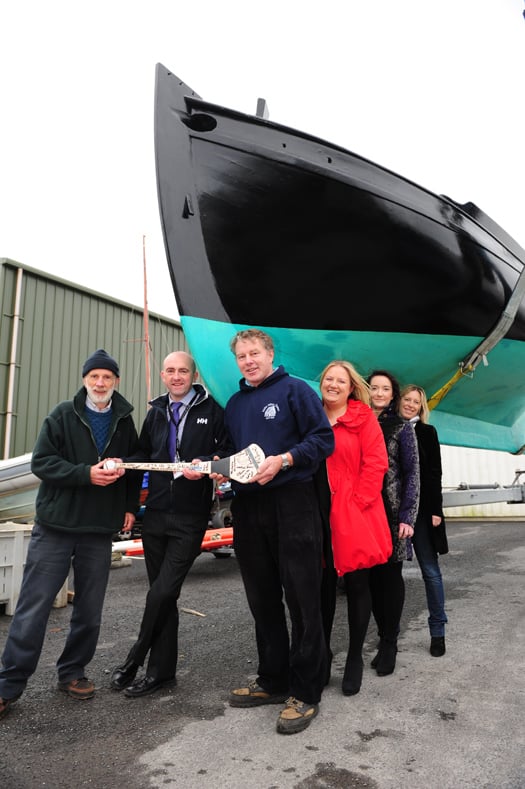
On her way: Nora Bheag heads for Abu Dhabi. Photo: Boyd Challenger
According to the Galway Independent, the boat is currently en route to Rotterdam in a container loaded with a small curach named Noa.
Plans to include turf and bottles of poitin were abandoned, however, due to customs concerns - instead two hurleys and a sliotar will make the trip.
Nora Bheag is expected to reach port by early December ahead of the Volvo Ocean Race fleet which arrives on 1 January, marking the first time the city has hosted and taken part in the race.
Vine says he came up with the idea of the boat swap because of the two countries' shared maritime heritage.
There are many similarities between hookers and dhows, too, from their comparable sail shapes to their usage for fishing and personal transport.
"This will be a huge common shared experience that will build true friendships and a real cultural exchange," said Vine. "I am hugely grateful to Emirates Heritage Club, which has done so much to revive Arabian dhows, for making such a project possible."
The National has more on the story HERE.
Meanwhile a delegation from Galway is set to travel to Spain later this week for the launch of the Volvo Ocean Race.
A week of events begins this Saturday ahead of the start of the race proper on 5 November in Alicante.
Dr John de Courcy Ireland Remembered at Connemara Maritime Festival
Ireland's leading maritime histortian will be remembered during Conamara Sea Week, which starts next Friday.
The 10-day programme celebrating the west of Ireland's rich maritime heritage kicks off just two days after the centenary of the late Dr John de Courcy Ireland, who tirelessly documented Ireland's relationship with the sea in parallel with a distinguished career as a political activist.
According to The Irish Times, he will be remembered during a conference on 'The Sea as Inspiration' on Saturday 29 October in Letterfrack, Co Galway.
Education and arts are major themes of the maritime festival, which will also feature an exhibition of works from emerging artists.
For more details visit the website of the Conamara Environmental Educational and Cultural Centre at ceecc.org.
Clodiagh Expedition Leads to New Industrial Heritage Find
Four boats of the Heritage Boat Association, including Heritage Barges 68M and 72M, navigated the Clodiagh to Portlaw recently, the first time that barges have moored at the old Quay in 75 years.
They discovered the Portlaw Graving Docks at the Quay and based on the information in some of the historical documents at the Heritage Centre, these may date from as early as the 1820s and been built before the town. On the same site are the remains of a stone workshop and behind the cut stone quay, they found an old cobbled yard and track.
These structures are close to the old Lock Gate, whose design is reputed to be unique in the British Isles. The gate formed the entrance to the Portlaw Canal where raw materials were carried by barge into the Cotton Mill and the finished product was sent from here on the first stage of the journey to countries all over the world.
All concerned were excited about finding these structures which may pre-date the building of the town of Portlaw. Gerry Burke of the Heritage Boat Association stated "Finds like these are not only important to our boating heritage but give us insights into the social aspects of our ancestors and their amazing skills in creating innovative industrial artefacts by hand. It is important they are preserved for both their tourism value and for future generations to appreciate."
Brian Goggin, who writes about Irish Waterways' history, said "Portlaw's foundation as an industrial town is intimately linked with the use of the River Clodiagh, but there is little published information about the navigation or about how boats used it. These new discoveries add an extra dimension to our understanding and extend the boundaries of the area that should be conserved."
The Heritage Boat Association's aspiration is to protect, promote and celebrate the floating heritage on the inland waterways of Ireland. Our floating heritage provides us with a direct link to the past and includes both commercial and pleasure craft that plied the inland waterways.
Invitation to Cork Harbour Summer School
The first Cork Harbour Summer School, hosted by Meitheal Mara, takes place on Friday 10 June at the Custom House Offices of the Port of Cork.
The school, to be opened by Minister for the Marine Simon Coveney, will bring together speakers from the principal authorities with responsibility for the harbour and people with a vision for its future.
The summer school will encourage a better appreciation of Cork Harbour as a resource, with a focus on subjects from leisure in a working port to history and heritage, marine recreation, leisure tourism, and getting people afloat.
There will also be ample time for mingling and exchange of views informally between contributors and audience, which is an important part of the school.
The Cork Harbour Summer School is part of Ocean to City, Cork’s maritime festival with a programme of activities from Friday 3 to Sunday 12 June.
The event is free for individuals. RSVP no later than Friday 3 June.
More details about the Cork Harbour Summer School programme are available HERE.



























